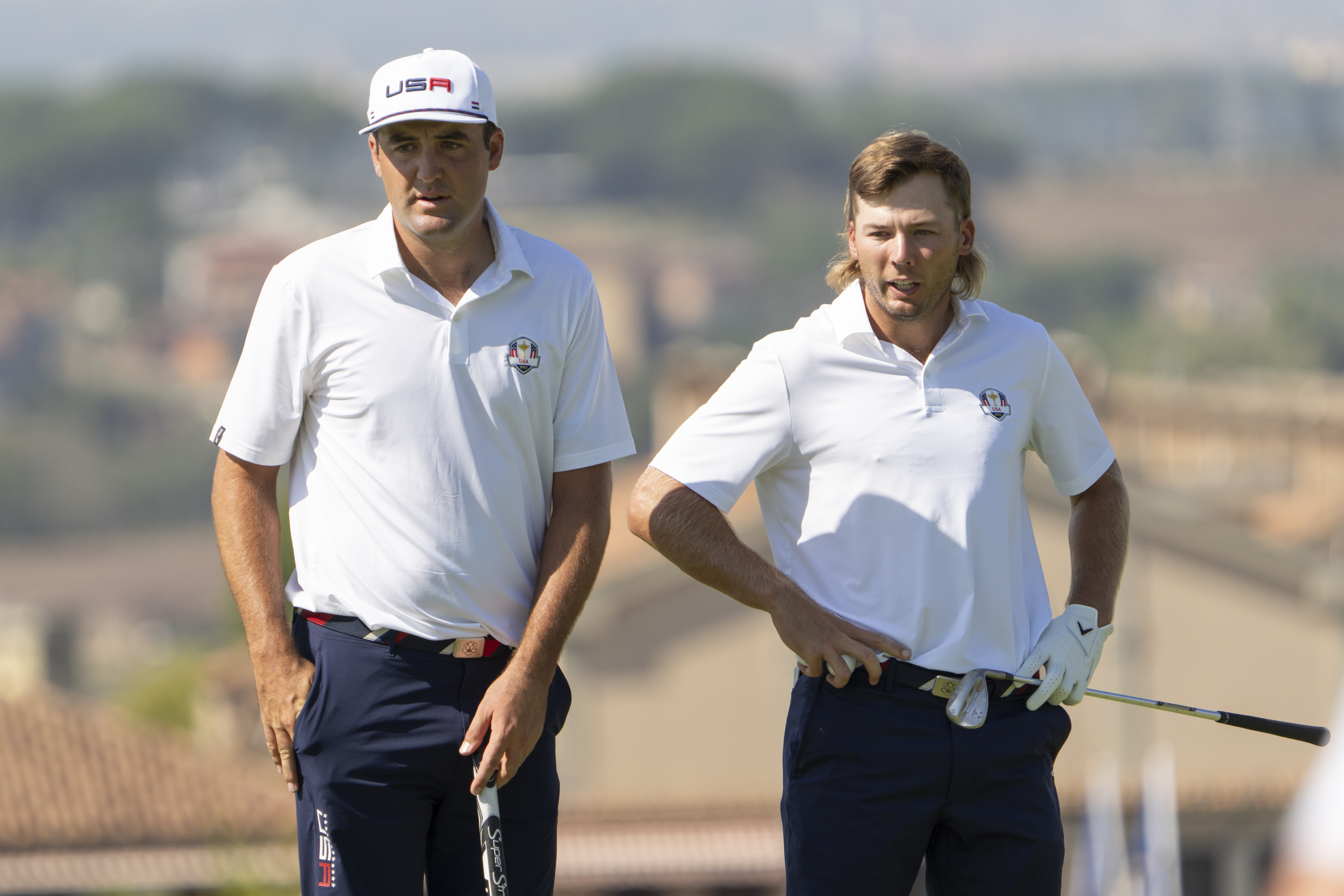Two numbers confer stature among elite golfers. World ranking is one, despite the mutterings of LIV loyalists. Europe’s Ryder Cup team boasts the second, third and fourth-ranked players in the game, so captain Luke Donald had them lead off Friday’s opening session at Marco Simone. Rory McIlroy, Jon Rahm and Viktor Hovland each returned a point. Major championship victories also separate top players. U.S. captain Zach Johnson’s starting line-up combined for four major wins. The guys he benched have 11, including two this year.
If pressed, Johnson can probably offer reams of analytics and statistical profiling to support his decision-making, but then many a dubious position can be defended by data that confirms what we wish to believe. If the U.S. goes on to lose for the tenth time in the last 14 Ryder Cups, the calls Johnson made before lunchtime on day one will be picked over mercilessly. Yet, to paraphrase Donald Rumsfeld, it may be his responsibility but it is not his fault. Or at least not entirely.
The American skipper has been consistently transparent about how much influence he grants his players, and during a Tuesday press conference essentially acknowledged that the U.S. captaincy is crowd-sourced. “I can say this in full confidence with our six guys that made this team: Those guys were, you know, adamant they wanted those six other guys to help complete their team,” he said.
“Adamant.”
So the locks for the team decided who would get the picks.
Scottie Scheffler (lock) and Burns (pick) are close friends. They played together three times at the Presidents Cup last year and didn’t win a match, losing two and halving one. Advocacy for a pairing with that record ought to be dismissed by a captain, not indulged. And certainly not sent out first in alternate shot when one guy is struggling to find fairways and the other has issues finding the hole from short range.
Much will also be made of who didn’t work the early shift.
Like Jordan Spieth and Justin Thomas. Sure, neither has played well recently, but the former is a talismanic figure with a winning record in foursomes, while the latter is a .500 and unlikely to be intimidated by the raucous opening-day environment. Or Brooks Koepka, a current major title holder, who blistered Marco Simone in the last practice session on Thursday.

Team USA golfer Justin Thomas (right) lines up a putt on the ninth hole as golfer Jordan Spieth looks on during day one fourball at the 44th Ryder Cup golf competition at Marco Simone Golf and Country Club. Mandatory Credit: Kyle Terada-USA TODAY Sports
Captains hewing to an analytics-based strategy must know when to adapt in fluid situations, but tentative leaders may view changing tack as an abandonment of all their advance planning, ultimately finding themselves adrift with a life vest that won’t fully inflate. To his credit, Johnson rejiggered partnerships for Friday afternoon fourballs and his players displayed a flicker more life. But he could ill afford a misstep that gifted Europe a sweep of the first session, and he knows it.
Europe already had a strong team. Now it’s a strong team buoyed with confidence. Rahm’s heavyweight swagger is even more pronounced, his burly embrace serving to settle the young rookie Nicolai Højgaard. Hovland has shown more emotion in this unremunerated team affair than he did while winning more than $30 million on his own last season. By sunset, McIlroy had already won more points than in the entire ’21 Ryder Cup, and Tyrrell Hatton barely had reason to reach double digits in cuss words. None of those facts augurs well for Team USA.
To stem the tide, Johnson needs to make decisions without fear or favor, but doing so runs counter to the culture that has been cultivated in the U.S. team over the last nine years.
After the acrimony at Gleneagles in ‘14 — when the most impactful shot any Yank delivered came during the Sunday night post-mortem press conference, and was directed at his own skipper — the PGA of America formed a widely-mocked task force. The objective for the organization was obvious: absolve itself from future criticism by handing over control (and potential blame) to the players themselves.
The toxicity, theatrics and treachery were eventually eliminated: Phil Mickelson, Bryson DeChambeau, Patrick Reed, who has a better chance at winning one of his lawsuits than another Ryder Cup. But congeniality in the team room wasn’t just a by-product of the task force, it was the goal. Players at ease will perform well, went the logic. And while last year’s Presidents Cup showcased a unified, brilliant American team, ensuring comfort and companionship for 12 individuals isn’t always conducive to a winning performance.
As with the PGA Tour, the players now wield enormous power when it comes to the Ryder Cup, especially on the U.S. side. Their influence is decisive when it comes to choosing captains, picks and pairings. The actual team leader is there to give speeches and provide air cover. Johnson will defend the process and culture that has the U.S. facing a rough weekend in Rome because he’s loyal to his guys and a true believer in the task force product. But he’s going to face harsh criticism for decisions over which he almost certainly had something less than complete control.
There’s a ways to go in this Ryder Cup, but if the U.S. loses there will be plenty of blame to go around. But don’t expect it to be fairly apportioned. Team USA’s captain has been stripped of power, but not of responsibility.

